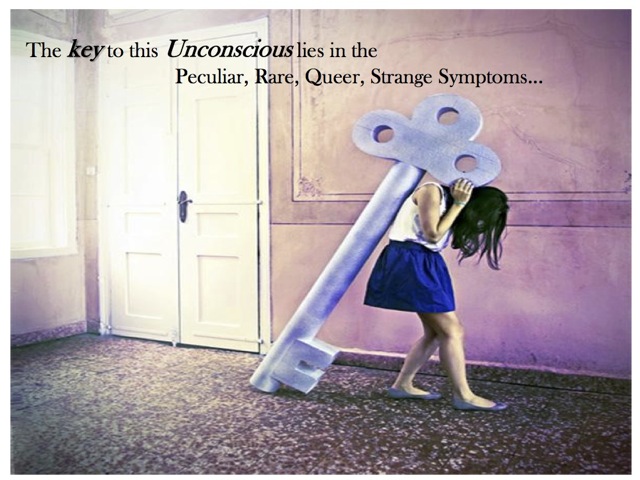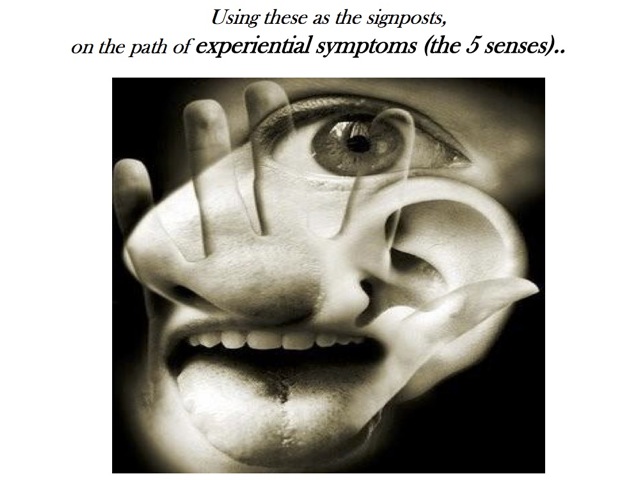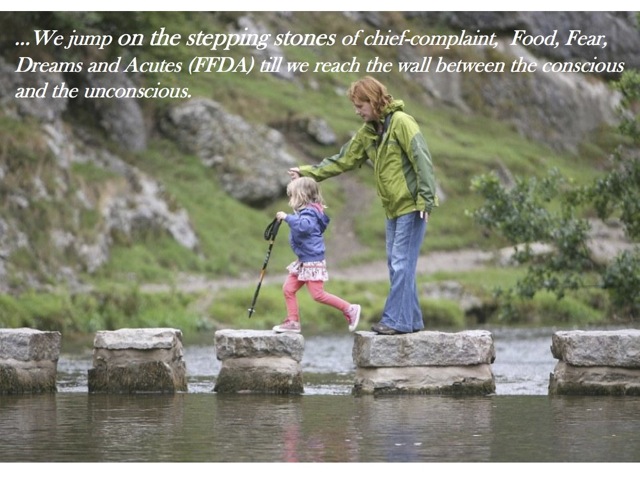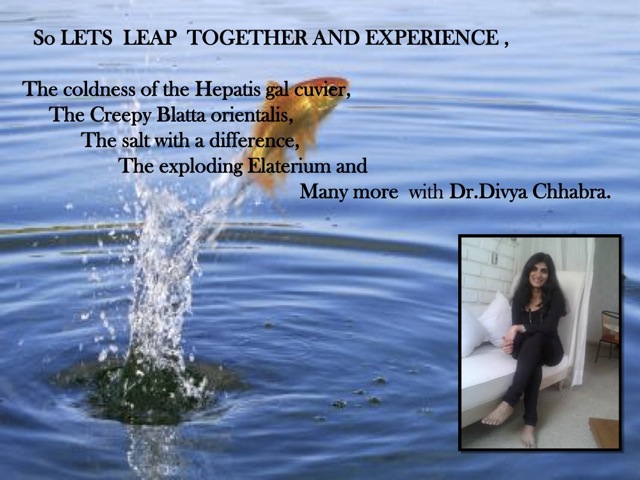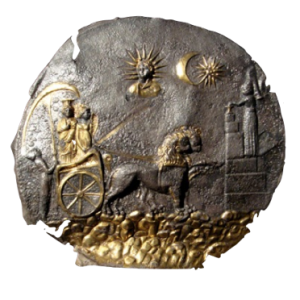Die Übereinstimmung, der Sprung vom Rationalen ins Irrationale, neue Videofälle
Einladung von Divya selbst:
Wie hoch interessant oder verknäult der bewusste Zustand einer PatientIn auch immer sein mag, stets jedoch wird er eine Fassade sein, die dazu nütze ist etwas zu verschleiern und uns fern zu halten vom eigentlichen „Dreh der Geschichte“. Dieser liegt verborgen im Unbewussten. Es ist nun mal ein Überlebensmechanismus des Bewusstseins zu verhindern, dass das Unbewusste in das Bewusste hinauf driftet. Wie aber können wir dann den Zustand unserer PatientIn ausloten, wenn wir selbst auf dem Boden des Bewussten stehen und mithilfe unseres Verstandes mutmaßen, was wohl bei der PatientIn im Unbewussten liegt?
Über die Jahre nun bin ich, wenngleich auch nur zögerlich, zu der Auffassung gelangt, dass ein homöopathischer Prozess die einzige Methode ist, die ich heutzutage erkennen kann, die uns unmittelbar zum Unbewussten führt und damit zum spontanen, vorurteilslosen und unvorhersehbaren „Dreh in der Geschichte“, der dann auch zugleich der Sprung zum Simillimum ist.
Die wissenschaftliche und vorurteilslose Methode mit der es gelingt gemeinsam mit der PatientIn über diese Mauer vom Bewussten ins Unbewusste zu springen – was so viel bedeutet, wie den derzeitigen Zustand der PatientIn mit dem Simillimum in Übereinstimmung zu bringen. Es mag sich dabei nicht unmittelbar das Simillimum als solches zeigen, jedoch aber die unmittelbare Herkunft des Simillimums sich offenbaren.
Immer wieder bin ich angezogen von der Kreativität, die Berlin und Mareen für mich symbolisieren. Ich werde mich bemühen Fälle mit tiefen Pathologien und auch akuten Erkrankungen mitzubringen, sowie natürlich interessante Arzneien vorzustellen, gewöhnliche, wie seltene.
Gemeinsam werden wir den „Dreh in der Geschichte“ (den Zustand) entwirren!
In diesem Seminar wird Divya Fälle mit folgenden Erkrankungen zeigen :
Hyperthyreodismus, Epilepsie, Vitiligo, Schlaflosigkeit, ADHD, Unfruchtbarkeit, Myasthenia gravis
Vorgestellte Arzneien werden sein:
Ammonium phosphoricum, Lithium citricum, Natrium phosphoricum, Litchi chinensis, Ceiba petandra (Kapok), Neodymium (Lanthanid)


